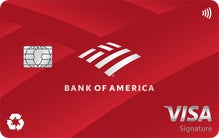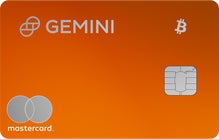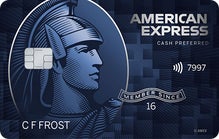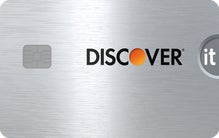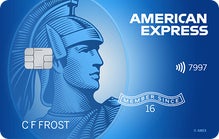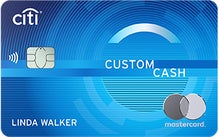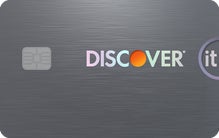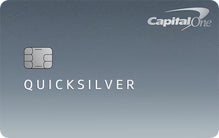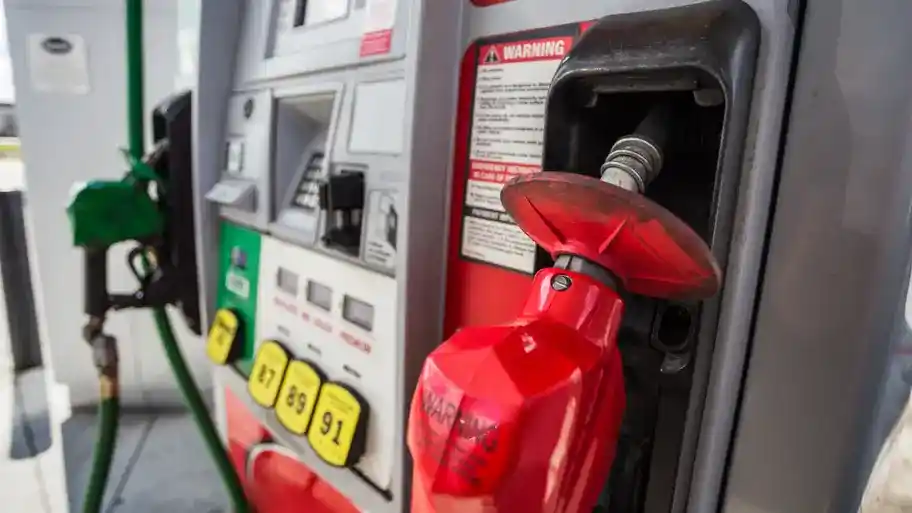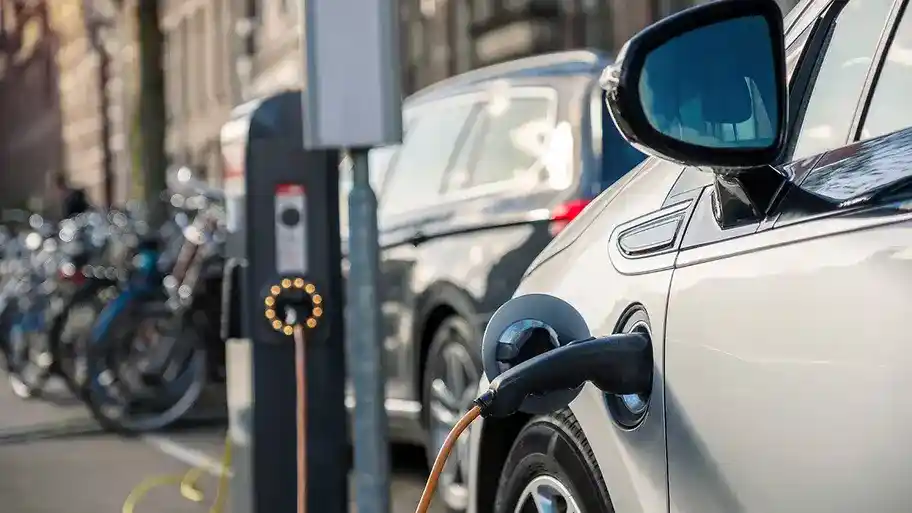Best gas credit cards for February 2026
Advertiser Disclosure: Bankrate’s editorial team chooses and recommends the credit cards on this page. Our websites may earn compensation when a customer clicks on a link, when an application is approved, or when an account is opened. However, our recommendations and card ratings are produced independently without influence by advertising partnerships with issuers.
Filter by
Showing 8 results
Best overall
Intro offer
$200
Rewards rate
1% - 6%
Annual fee
$0
Regular APR
17.49% - 27.49% Variable APR on purchases and balance transfers
Why you'll like this: You can earn superb cash back on gas and groceries, or exchange your gas category for one of five others once a month to suit your spending.
Reward Details
What you should know
Card Details
on Gemini's secure site
See Rates & FeesIntro offer
N/A
Rewards Rate
1% - 4%
Annual fee
$0
Regular APR
18.49% - 34.49% Variable
Why you'll like this: You’ll earn crypto rewards at one of the best rates you can get on gas purchases.
Reward Details
What you should know
Card Details
Apply with confidence
By applying, you can see if you're approved before impacting your credit
Best for gas and groceries
on American Express's secure site
See Rates & Fees, Terms ApplyIntro offer
Earn $250
Rewards rate
1% - 6%
Annual fee
$0 intro annual fee for the first year, then $95.
APR
19.49%-28.49% Variable
Why you'll like this: Its chart-topping U.S. supermarket rewards rate and stellar return at U.S. gas stations and transit make this perhaps the leading card for grocery runs and commuting.
Reward Details
What you should know
Card Details
on Discover's secure site
See Rates & FeesIntro offer
Cashback Match
Rewards rate
1% - 2%
Annual fee
$0
Regular APR
17.49% - 26.49% Variable APR
Why you'll like this: Discover cards have some of the lowest rates and fees, making this one of the most cost-effective choices for year-round gas rewards.
Reward Details
What you should know
Card Details
Apply with confidence
By applying, you can see if you're approved before impacting your credit
Best for no annual fee
on American Express's secure site
See Rates & Fees, Terms ApplyIntro offer
Earn $200
Rewards rate
1% - 3%
Annual fee
$0
APR
19.49%-28.49% Variable
Why you'll like this: The high cash back rates on U.S. gas station, U.S. supermarket and online retail purchases make this one of the most lucrative no-annual-fee cards.
Reward Details
What you should know
Card Details
Best for custom rewards
Intro offer
$200
Rewards Rate
1% - 5%
Annual fee
$0
Regular APR
17.49% - 27.49% (Variable)
Why you'll like this: You'll earn a top cash back rate for gas purchases without much effort or organization.
Reward Details
What you should know
Best for building credit
Intro offer
Cashback Match
Rewards Rate
1% - 2%
Annual fee
$0
Regular APR
26.49% Variable APR
Why you'll like this: You can build credit while earning rewards, a rarity on a secured card.
Reward Details
What you should know
Card Details
Best for bad credit
Intro offer
N/A
Rewards Rate
1.5% - 5%
Annual fee
$0
Regular APR
28.99% (Variable)
Why you'll like this: You could boost your credit limit in as little as six months by using your card responsibly.
Reward Details
What you should know
Card Details
Remove a card to add another to compare
Remove a card to add another to compare
Compare Bankrate's top gas credit cards
| Card Name | Earns | Best for | Bankrate Review Score |
|---|---|---|---|
|
3 percent cash back on select category purchases of choice; 2 percent cash back at grocery stores and wholesale clubs (up to $2,500 of combined 3 and 2 percent category purchases each quarter, then 1 percent), plus 1 percent on all other purchases. For the first year earn 6 percent cash back in the eligible category of your choice on up to $2,500 in combined purchases per quarter, then unlimited 1 percent thereafter. |
Flexibility + Best overall |
3.8 / 5 Our writers, editors and industry experts score credit cards based on a variety of factors including card features, bonus offers and independent research. Credit card issuers have no say or influence on how we rate cards.
Apply now
on Bank of America's secure site
|
|
|
Get 4% back on gas, EV charging, transit, taxis & rideshares on up to $300 in spend per month. 1% thereafter. Spend cycle refreshes on the 1st of the calendar month.
3% back on dining
2% back on groceries
1% back on all other purchases |
Crypto rewards |
3.0 / 5 Our writers, editors and industry experts score credit cards based on a variety of factors including card features, bonus offers and independent research. Credit card issuers have no say or influence on how we rate cards.
Apply now
on Gemini's secure site
|
|
|
6% cash back at U.S. supermarkets on up to $6,000 per year in eligible purchases (then 1%), 6% cash back on select U.S. streaming subscriptions, 3% cash back at eligible U.S. gas stations and on transit (including taxis/rideshare, parking, tolls, trains, buses and more) purchases and 1% cash back on other purchases. Cash Back is received in the form of Reward Dollars that can be redeemed as a statement credit and at Amazon.com checkout. |
Gas and groceries |
4.4 / 5 Our writers, editors and industry experts score credit cards based on a variety of factors including card features, bonus offers and independent research. Credit card issuers have no say or influence on how we rate cards.
Apply now
on American Express's secure site
See Rates & Fees
, Terms Apply
|
|
|
2 percent cash back at gas stations and restaurants (on up to $1,000 in combined purchases each quarter, then 1 percent) and 1 percent on all other purchases |
Low APR |
4.6 / 5 Our writers, editors and industry experts score credit cards based on a variety of factors including card features, bonus offers and independent research. Credit card issuers have no say or influence on how we rate cards.
Apply now
on Discover's secure site
|
|
|
3% cash back at U.S. supermarkets, 3% cash back on U.S. online retail purchases, 3% cash back at U.S. gas stations, on eligible purchases for each category on up to $6,000 per year in purchases (then 1%). Cash back is received in the form of Reward Dollars that can be redeemed as a statement credit and at Amazon.com checkout. |
No annual fees |
4.6 / 5 Our writers, editors and industry experts score credit cards based on a variety of factors including card features, bonus offers and independent research. Credit card issuers have no say or influence on how we rate cards.
Apply now
on American Express's secure site
See Rates & Fees
, Terms Apply
|
|
|
5 percent cash back (on up to $500 each billing cycle, then 1 percent) on your top eligible spending category each billing cycle, including gas stations |
Custom rewards |
|
|
|
Earn 2% cash back at Gas Stations and Restaurants on up to $1,000 in combined purchases each quarter, automatically
Earn unlimited 1% cash back on all other purchases |
Building credit |
5.0 / 5 Our writers, editors and industry experts score credit cards based on a variety of factors including card features, bonus offers and independent research. Credit card issuers have no say or influence on how we rate cards.
Apply now
on Discover's secure site
|
|
|
Earn unlimited 5% cash back on hotels, vacation rentals and rental cars booked through Capital One Travel
Earn unlimited 1.5% cash back on every purchase, every day |
Bad credit |
4.2 / 5 Our writers, editors and industry experts score credit cards based on a variety of factors including card features, bonus offers and independent research. Credit card issuers have no say or influence on how we rate cards.
Apply now
on Capital One's secure site
|
What is a gas credit card?
There isn’t actually a type of credit card known as a “gas card." Instead, there’s various rewards credit cards that offer cash back, points or miles for gas purchases.
These cards may feature rotating, tiered or customizable rewards categories that include gas stations and electric vehicle (EV) charging stations. Some popular everyday spending cards, such as some of the best grocery cards, also offer rewards on gas. Additionally, co-branded cards— like from Costco — offer specific cash back rates for gas purchases. And while not exclusive to gas, certain travel cards can also include gas as a bonus category or allow you to choose it as a preferred rewards category, making them a strong choice for fuel-related spending.
How much can you save with a gas credit card?
You can use a credit card for gas to help you save money. You won’t see a lower bill at the pump, but because these cards offer several benefits, you’ll see savings from benefits like:
- Welcome bonuses
- Rewards and cash back
- Introductory offers, like reduced interest rates or boosted rewards rates
Like other rewards cards, they can help you offset travel expenses or your ongoing commuting costs. Some gas credit cards also feature perks like roadside assistance or car rental insurance, which can be beneficial if you’re regularly on the road.
Bankrate Insight
The average American spends $2,449 per year on gasoline, other fuels and motor oil, according to the Bureau of Labor Statistics' most recent Consumer Expenditures Report. Charged on a credit card that earns 3 percent cash back on gas, those expenses would earn you $73.47 back per year.
Great gas credit card features
Gas will rarely be the focus of any credit card, but it remains a valuable category to consider in your overall rewards strategy. Commuting can be costly and the price of gas is an important factor for long-haul and local travel expenses. You can’t determine what you pay for gas, but you can choose payment options that give you the best chance at reducing what you owe. Here are some features to look for when trying to keep gas expenses as low as possible:
If you’re like most people, you may experience seasons when you travel frequently and others when you don't. A great gas card will help you remain flexible with your rewards earnings by including other popular spending categories.
Best example: Blue Cash Everyday® Card from American Express
A great gas card will reward you generously for gas purchases. Any rewards rate above 3 percent is worthy of being considered great. If it’s below this, you should consider looking at our options above.
Best example: Citi Custom Cash® Card
Based on average annual consumer spending, gas is not a substantial enough category to justify paying an annual fee for a card dedicated to earning gas rewards. You’ll also want to avoid other potential fees, like a high APR and high late payment fees.
Best example: Discover it® Chrome
Gas prices today: What you're paying and how credit cards can ease the burden
There is a lot of economic uncertainty today, so it isn’t unreasonable to want to fill your car’s gas tank as cheaply as possible, but that’s not realistic, sometimes. However, you can take measures to make sure you're recouping part of your expenses.
It’s your responsibility to protect your savings, and the first step is to work with the right information. Is gas expensive today, or are you comparing its cost to what it might have cost 30 years ago? The U.S. Energy Information Administration publishes the cost of petroleum and other liquids along with the average retail price of gas for each month. With data dating back to 1993, we can see how much a gallon of gas costs today compared to its historical value. The average price of a gallon of gas in May 2025 was about $3.28. In May 2024, the price was approximately $3.73.
Credit cards with gas rewards programs are a great safeguard from overpaying for gas because several rewards credit cards include boosted rates for gas purchases and many of them are some of the best rewards cards available.
Ask Bankrate: What is your favorite credit card to use for gas?
Some of the most lucrative rewards cards for gas purchases are often tiered, category-based cards that also cover common daily spending categories like grocery or online retail purchases. We’ve asked our experts which credit card they use to earn rewards on gas and how they maximize their earnings on these purchases.
Bankrate staff insights
How to earn the most gas rewards
You’ll want to make sure you’re a good candidate for a gas rewards card before applying for one. It might be more helpful to use a card with gas as a secondary rewards category if you don’t spend hundreds of dollars each month on gas or EV charging. No matter what you decide, here are some tips for maximizing rewards for gas and EV charging.
- Determine where gas fits into your budget: Gas credit cards are best for people who spend a significant amount at the pump. People who work from home or don’t drive often might not find much value in earning cash back on gas station purchases.
- Check what counts as gas: Read the fine print on the card’s gas category to make sure that you can earn on all gas station purchases everywhere — and not just those made at the pump. While you may spend the most when filling the tank, make sure you also get cash back when you run in to grab a snack.
- Offset annual fees: While many gas cards don’t charge an annual fee, a few do. Cards with annual fees typically offer better perks and benefits, but no-annual-fee cards are more accessible.
What type of spender are you? Our Credit Card Spender Type Tool gives you personalized
More information on gas credit cards
Frequently asked questions about gas credit cards
How we choose the best gas credit cards
We select cards for “Best” credit cards pages based primarily on how cards score in our proprietary card rating system, our editors’ subjective assessment of card quality, card approval odds and credit requirements and unique card features.
Cards typically must score a minimum of 3.0 stars to be included on a “Best” list. However, we may include cards with scores below 3.0 if they have low credit requirements or unique features — despite their scores, these cards may still be among the “best” in certain categories. Card ratings are not influenced by advertisers or issuer relationships in any way.
Card selection and ordering may vary based on business considerations, including Bankrate visitor interest, site interactions and card application volume. Affiliate commissions (see how we make money), limited-time offers and a card’s general popularity in the product landscape may also influence which cards we feature on our pages and the order in which they appear. Bankrate’s editorial and business teams also strive to feature a variety of card types from various issuers.
Here’s a quick look at how our rating methodology breaks down for gas cards:
How we rate rewards cards
Our rating methodology for gas cards focuses heavily on rewards value — what kind of return we’d expect based on the average person’s spending and a card’s added bonuses and annual fee.
Here’s how overall scoring breaks down for rewards and cash back cards.
-
Value 65.00%
-
Flexibility 15.00%
-
Perks 15.00%
-
Customer experience 5.00%
